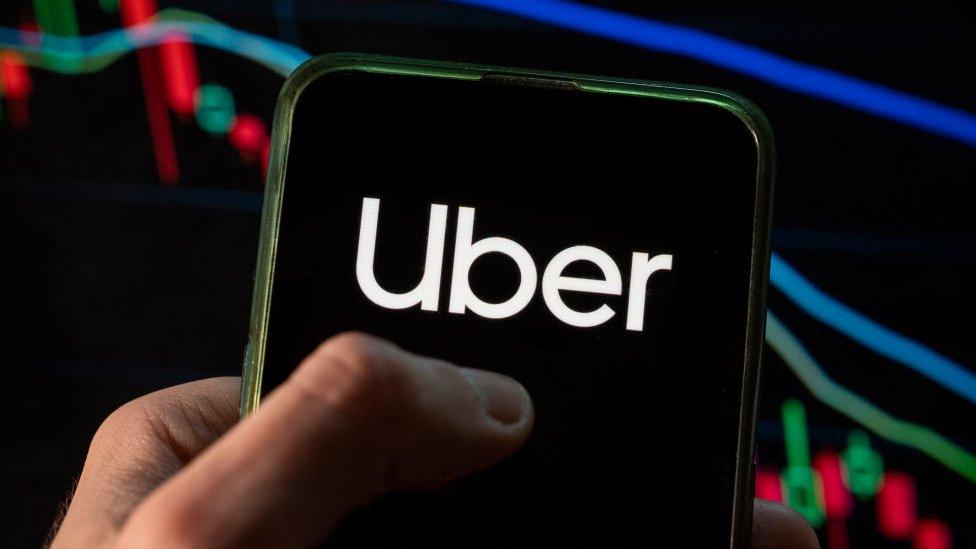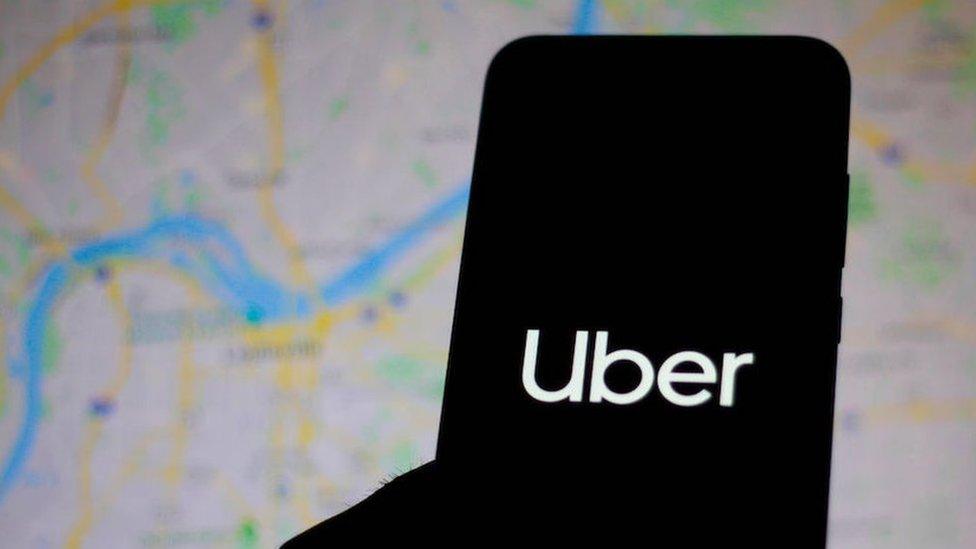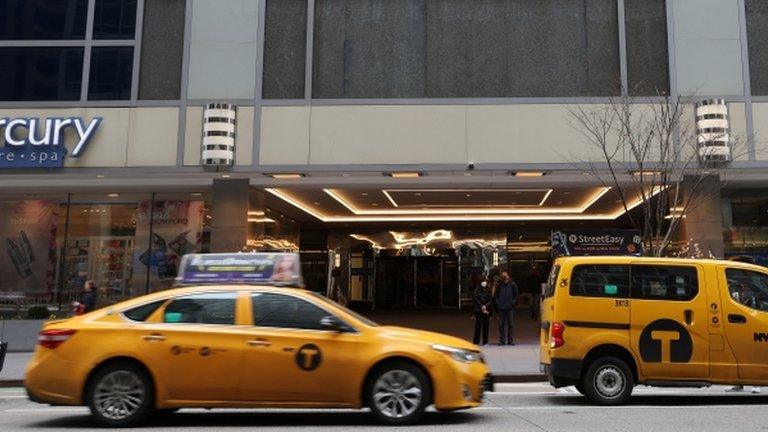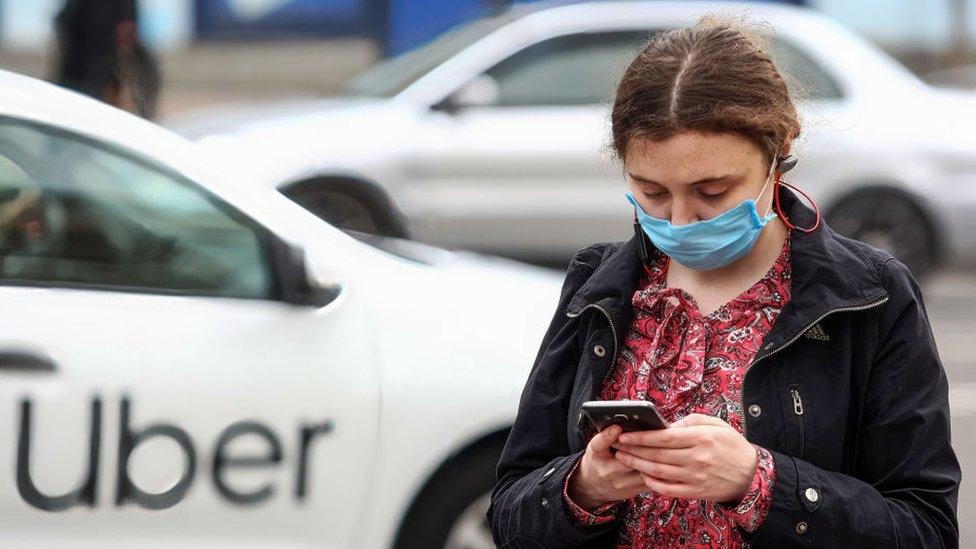Uber loses $5.9bn as Asia investment values fall
- Published

Ride-hailing and delivery group Uber has made a $5.9bn (£4.7bn) loss, mostly due to its stakes in other companies.
The firm said almost all of the loss was a result of the fall in the value of investments in businesses including two Asian ride-hailing giants - China's Didi and South East Asia's Grab.
Shares in Didi and Grab have plunged since listing in New York last year.
Despite the loss, Uber's boss highlighted its progress in recovering from the impact of the pandemic.
"Our results demonstrate just how much progress we've made navigating out of the pandemic and how the power of our platform is differentiating our business performance," chief executive Dara Khosrowshahi said.
That came as the company said the number of trips taken had risen 18% for the three months to the end of March, compared to the same period last year. That helped its revenue rise by 136%.
On a net basis, Uber's first-quarter loss soared to $5.9bn from $108m a year ago, driven by $5.6bn of drops in the value of stakes in other businesses, primarily Chinese ride-hailing company Didi.
However, Uber has enough cash to hold on to those loss-making stakes and wait for a better time to sell them, chief financial officer Nelson Chai said.
Its shares ended Wednesday's trading session in New York 4.65% lower.
In 2016, as it faced tough competition in China, Uber sold its business in the world's second largest economy to Didi in exchange for an 18% stake in the Beijing-headquartered firm.
Didi's US market valuation has fallen by more than 80% since its $4.4bn debut on the New York Stock Exchange (NYSE) last summer.
Within days of the listing China's internet regulator ordered online stores not to offer Didi's app, saying it illegally collected users' personal data.
In December, the company announced plans to take its shares off the NYSE and move its listing to Hong Kong.
This week, Didi revealed that it faced an investigation by the US stock market watchdog about its initial public offering (IPO).
In 2018, when both firms were still privately owned, Uber sold its businesses in South East Asia to Grab for a 27.5% stake in the Singapore-based company.
Grab's shares fell sharply in their debut on New York's Nasdaq trading platform in December last year.
Its stock market valuation has dropped by almost 75% since the IPO, which was the largest ever US listing by a South East Asian firm.
Uber also owns a stake in Indian food delivery firm Zomato, which it got in 2020 in exchange for its Uber Eats operations in India.
Zomato's shares have almost halved in value since making a stellar stock market debut in July.

You may also be interested in:
The Zomato, Swiggy riders risking their lives to deliver food
Related topics
- Published26 March 2022

- Published24 March 2022

- Published6 December 2021
